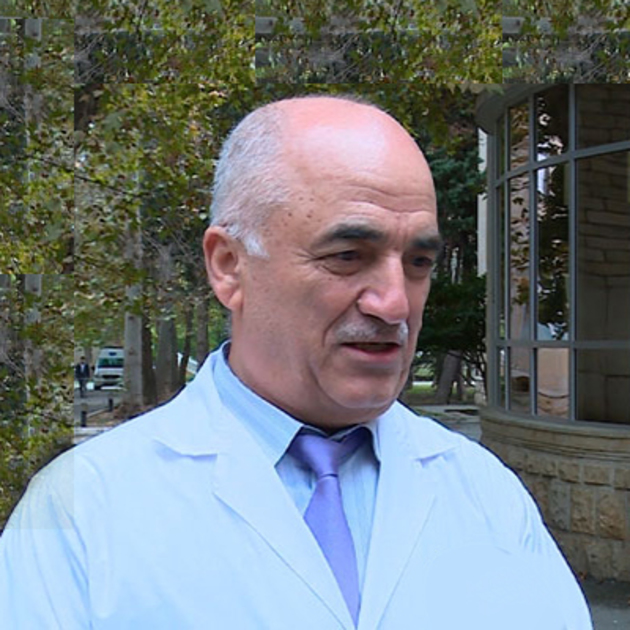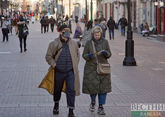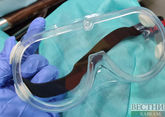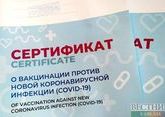To date, 105 more cases of coronavirus infection have been detected in Azerbaijan, which was a record number during the entire COVID-19 outbreak in the country. As of April 8, there have been 822 cases of coronavirus infections reported in Azerbaijan, 63 people recovered, 8 died. 751 patients are in special hospitals, 33 of them are in serious condition. Chief specialist in infectious diseases at Azerbaijan's Ministry of Health Jalal Isayev answered the questions from Vestnik Kavkaza about measures taken in the country to combat COVID-19 outbreak.
- What measures are being taken in Azerbaijan to prevent the spread of the virus?
- We have begun to take preventive measures as soon as there were reports about the first cases of infection in China: employees of the Health Ministry and the State Customs Committee were mobilized. The first case at our border was recorded on February 28 - it was a Georgian citizen returning from Iran to his homeland through Azerbaijan. Of course, the growth rate of the coronavirus outbreak in Iran could not but affect us. Azerbaijan has very close ties with Iran: residents of border regions often visit a neighboring state, many of our compatriots live in Iran, many have relatives there, many visit holy sites.
Before the border was closed, 5-10 thousand Azerbaijani citizens visited Iran daily. The spread of coronavirus in Iran, and then in here, led to the introduction of special measures, which were further tightened. Now we urge our people to stay home; no person can go out without special permission. Quarantine measures became the basis of prevention, because it is the aerosol-transmissible virus, and its spread can be stopped only by minimizing contacts and social isolation measures.
The disease affects each person differently. There are asymptomatic cases or has a long incubation period. In these cases, people can be spreading the disease without actually knowing they are sick. Such virus carriers think they are healthy, they visit relatives, meet friends. Therefore, quarantine measures are needed. I think that the measures, which will remain in force until April 20, will give a positive result. The government has made great efforts to stop the outbreak, therefore we have a lower incidence and mortality rate than in other European countries. I think we will achieve some success in preventing this disease, but it’s important that people take the government’s calls seriously and follow the warnings.
- When do you predict the peak of the disease?
- We are trying to ensure that there is no peak. Defining it is quite difficult. The increase in the number of infected automatically increases the predicted number of seriously ill patients. Social isolation measures are necessary to avoid this. I do not advocate imposing strict measures involving law enforcement agencies, however, people should understand that they must strictly observe the self-isolation regime. Those who go to work every day have a risk of getting infected. We constantly urge people to avoid crowded places, to observe hygiene.
- In the early 2000s, the deadly SARS virus spread across the globe, but then there were not as many deaths as it is now. What is the reason?
- On the contrary! SARS was much more dangerous than coronavirus, and it caused significant damage. The death toll amounted to about 10% of cases back then. It doesn't reach even 5% in the case of coronavirus. In addition, 80% of SARS cases were severe.
- Can we say that there is no reason for panic now?
- Yes. COVID-19 causes respiratory illness. I suppose that it could become a seasonal illness. The problem is that medicine knows almost nothing about this virus, because it was detected only four months ago. Therefore, its epidemiological patterns are unknown, there have been no clinical trials, there are no specific drugs, there is no vaccine. We don't know how the virus will behave in the future.
- Do you agree that the percentage of infection in post-Soviet countries is not as high as in Europe due to the massive use of BCG vaccine in the Soviet period?
- A vaccine is usually given against any specific infections. But there is an opinion that antibodies that appear during vaccination against one disease can protect against others as well. For example, the Soviet medical school used immunoglobulin in the prevention of influenza, which was also considered effective in the treatment of rubella. From this point of view, it is possible that some vaccines can help other treatments, but the main reason for the low spread of the virus in the post-Soviet space is the timely epidemiological measures.
The coronavirus strongly affected those European countries that initially did not take it seriously, and those that launched timely measures to counter the epidemic, were less affected by COVID-19. China is a great example of how a country with one and a half billion people was able to cope with the spread of infection using anti-epidemic measures. Such measures are very effective indeed, they can significantly reduce the spread of the disease. But despite the relatively low number of cases, we remain alert, and if necessary, the measures will be further tightened.










